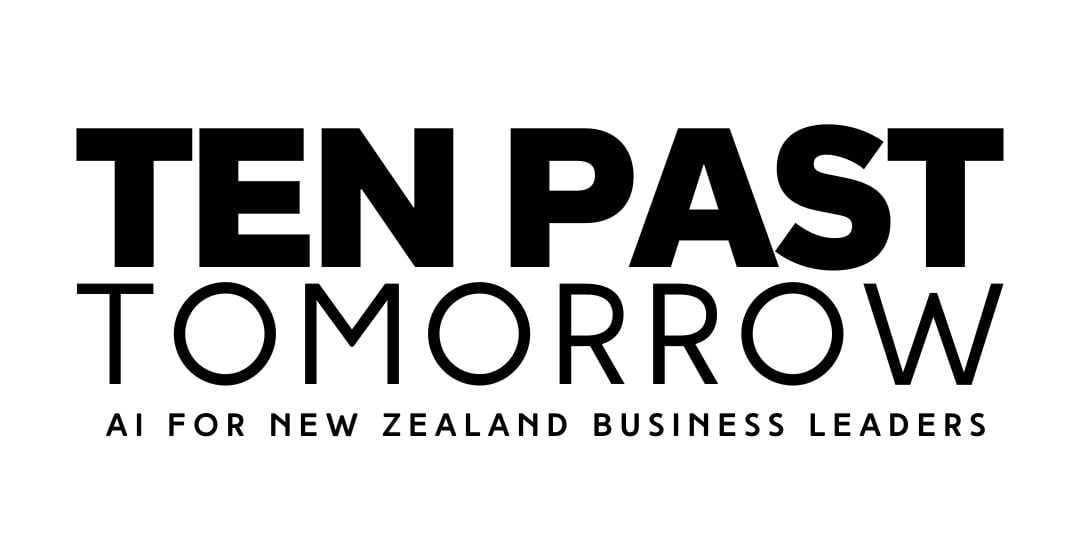How & Why AI Rewards Humans With a Questioning Mindset
"The temptation to form premature theories upon insufficient data is the bane of our profession." - Sherlock Holmes
It’s becoming more and more clear to me that in the AI age the world is sprinting towards, that saying will be more true than ever.
One of the questions I get asked without fail at every public talk I give is “What skills should we be learning, in the context of AI tools flooding our world?"
My answer? Always…
Critical thinking and questioning skills. (Amongst a half dozen others, but this is always top of my list.)
I notice a common myth developing that AI is going to replace our need to think.
That it’s going to make us lazy and stupid.
I argue that yes, it will make lazy people lazier. For lazy people, the temptation to offload to AI will be too great.
But for those who choose to use AI aspirationally; to do more, to do better, to innovate, it will supercharge all of those qualities.
In today’s article, I put forward the argument that the root of that aspiration is a questioning mindset…
The hallmark of high-performers: Incisive questioning
I’ve spent some time recently reflecting on people that I’ve worked with, or sports team-mates, who were really exceptional colleagues or leaders, and what set them apart.
A common thread is their ability to ask penetrating questions (either openly, of others, or internally of themselves) that sparked new ways of thinking and uncovered hidden opportunities.
And although it’s early days for all of us in the AI age, so far I’ve noticed that the business leaders who are mastering the early adoption stage of AI for themselves and their companies are those who have also mastered the art of inquiry.
They all seem to have the shared ability to cultivate a genuine curiosity about their businesses, their employees, their customers, and the world around them. When faced with a problem, they resist the urge to jump to conclusions.
Instead, they take a step back and ask themselves, "What assumptions am I making? What don't I know that could be crucial to understanding this issue?"
I’m not sure yet whether to label this a skillset, or a character trait?
But I am sure it’s a hugely valuable way of looking at the world, in the age of AI.
 "Peek-a-boo clue, I see you"
"Peek-a-boo clue, I see you"
Critical thinking in the AI era
I can see why (for those who don’t yet grasp the fundamentals of what generative AI is) it's tempting to believe that critical thinking skills may become less important as AI technology becomes both more ubiquitous and more powerful. (Make no mistake, it will only become both of those things from here on.)
I get the logic, and the anxiety; if machines can analyse data, generate insights, and even make decisions for us, what's left for us to do?
For me, it’s our uniquely human ability (for now, anyway) to ask the right questions.
To go back to the man who opened this article, as Sherlock Holmes often demonstrated, it's not just about having access to information — it's about knowing which information is relevant and how to interpret it.
By asking incisive questions of our AI assistants, and using critical thinking and reasoning to analyse the insights the AI give us, we can uncover our own human blind spots, challenge our own assumptions, and get to more robust conclusions than if we relied solely on our own (well worn and habitual) tracks of thinking.
When working with clients, after familiarising and training employees with the right AI tools and platforms for their industry, the next step I encourage is to generate a questioning mindset.
That means not simply taking AI outputs at face value.
How?
By interrogating the answers, questioning the reasoning the AI used to arrive at their conclusions, and probing for potential biases or limitations.
Tools like ChatGPT, Google Gemini and Anthropic’s Claude make this exceedingly easy to do!
Simply by talking to them as if they’re a human assistant (and always remembering they’re not!) you can very naturally question, demand more, ask for explanations, and interrogate the reasoning they used to give you their answers.
In doing so, you're strengthening your own critical thinking skills to leverage AI as a strategic partner rather just blindly (and lazily) accepting your AI’s outputs.
Asking the right questions: The key to effective strategy
As a strategic business leader, the quality of your questions is a strong differentiator between what might become a flop of a plan, or a company-defining vision.
I think that just as Sherlock Holmes used strategic questioning to unravel his cases, as business leaders we must learn to ask the questions that cut to the heart of our strategic challenges.
One powerful question I've found particularly useful is, "What would need to be true for this strategy to succeed?"
This simple inquiry forces us to confront our assumptions, anticipate potential obstacles, and develop a clearer picture of the conditions necessary for a strategy to thrive.
Another question that can yield surprising insights is, "What would our competitors hate for us to do?"
To repeat a point I made above; by talking to a tool like ChatGPT in a very human way, explaining in detail the strategic scenario you’re pondering, and using the AI to assist your questioning of options and alternatives you can very easily ask questions like the two above. In doing so you can start a conversation with your AI that could uncover bold moves that may have been hiding in plain sight, because of your own cognitive blind spots.
AI as a strategic enhancer
It’s one of my foundational objectives in the work I do, to promote the idea that contrary to the fear that many have of AI replacing human judgement, that the technology can be a powerful augmenter and strengthener of our ability to ask better questions and make smarter decisions.
By using AI to explore alternative scenarios, test assumptions, and surface unexpected insights, we can elevate our strategic thinking and make more informed choices.
For example, I help senior leadership teams and Boards of Directors to use AI-powered simulations to model the potential outcomes of different strategic options, helping them identify the most promising paths forward.
Sounds complex doesn’t it? I can assure you it’s not, with just a small amount of AI training and education, for even the least technical of people.
Another simple way to use AI as a critical thinking supercharger is to use the tools to analyse large amounts of customer feedback and uncover hidden pain points or un-met needs that could inspire new service or product ideas.
This is all stuff that real business leaders in New Zealand, just like you, are doing right now.
In combining the power of human inquiry with the cognitive might of machines, we can now achieve a level of strategic insight that was unimaginable just a few years ago.
Fostering a questioning mindset
Obviously, cultivating a questioning mindset is not a one-time exercise but a lifelong practice.
It’s often recommended that a great way to nurture questioning skills is to surround ourselves with curious, inquisitive people who will challenge our thinking and expose us to new ideas.
Another oft-quoted tactic is to simply to make questioning a daily practice. Before making a decision, ask yourself, "What haven't I considered? What might I be missing?". And when faced with a challenge, don't just settle for the first solution that comes to mind—ask yourself, "What if there's a better way?"
Both of those habits are easily transferred to the AI age.
AI is not a replacement for curious, inquisitive people who will challenge our thinking and expose us to new ideas.
But it is a great proxy for it.
And, AI is available 24/7, without judgement.
I often find it the perfect tool to begin the process of critical thinking about a challenge or issue, which I then continue in dialogue with humans.
Conclusion
In the AI era, the power of inquiry is not just a nice-to-have skill — it's an essential component of business success.
By developing a questioning mindset and leveraging AI as a strategic partner, we can all unlock new levels of insight, innovation, and impact in our organisations (and personal lives).
To go back to Sherlock once more…
"Education never ends. It is a series of lessons, with the greatest for the last."
So, as business leaders in New Zealand, I’d love to see us collectively hone our questioning skills, and use them to drive our organisations and our country forward (some might say catch up?).
The rewards of a well-crafted question have never been greater.
What will you ask today?



Got something to add? Chime in below...